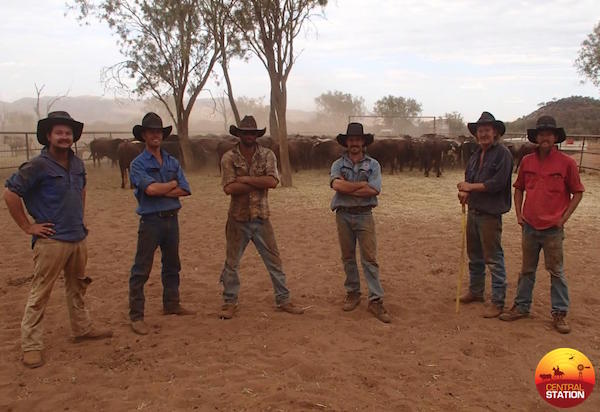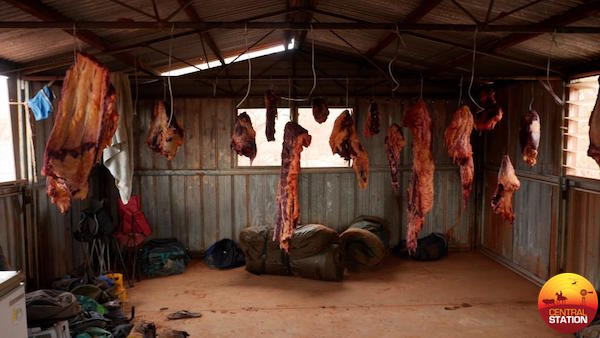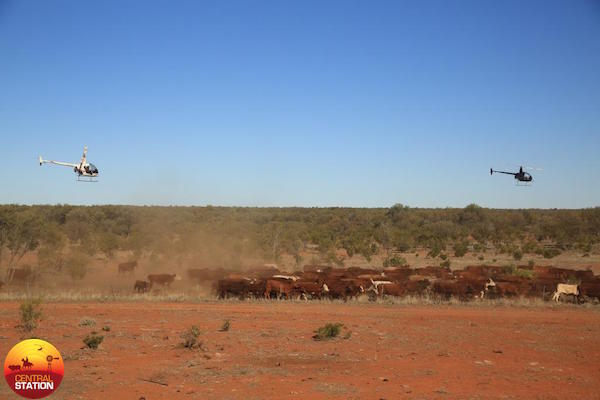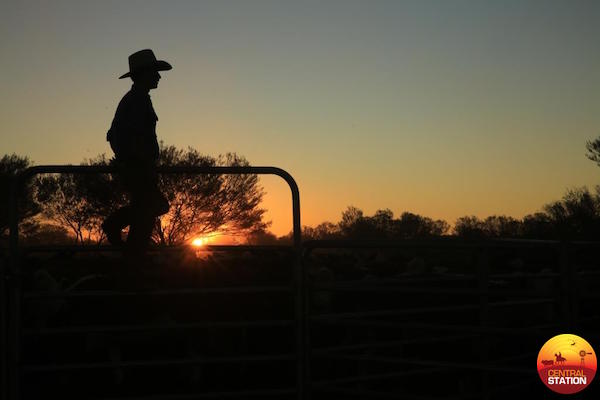Meat comes from the shelf
Host: Kadaitcha Pastoral Company
Written by James Christian – Owner, Kadaitcha Pastoral Company.
Due to the agenda of animal rights activists and their deplorable, contrived footage of extremely uncommon events, the former federal agriculture minister had an unimaginably bad knee-jerk reaction and put the kybosh on the northern live export cattle trade. This catastrophic decision had ramifications all the way back down the supply chain: loaded trucks had to be unloaded; export feeder yards, already full, couldn’t fit more stock; cattle that had been drafted and were ready for trucking had to be let go; plenty of things had to be paid for – choppers, ringers, truckies, the camp cooks, and govies – and yet there was no cash-flow on the horizon all of a sudden. The minister panicked and threw the car keys out the window while driving down the highway, shutting his eyes and hoping the ban would be the magical solution to an artificial problem.
Of course, though, none of this is news to the readership of Central Station.
We know that meat doesn’t come from the supermarket, power doesn’t come from the plug, and water doesn’t come from the tap. If we wanted to live a life where utilities were taken for granted we’d be in the city, where instead of commuting forty-five minutes to and from work each day we commute a couple of hours to and from town every couple of weeks in order to replenish supplies, pick up spare parts, and refill the Av-gas drums.
I grew up in the leafy streets of the eastern suburbs of Sydney, where the CBD, Bondi Beach, and the harbour were roughly equidistant. My siblings and I were often encouraged to be outside climbing trees, riding our bikes, or kicking a footy in the park if we weren’t at the beach. Computer games and the like didn’t exist in our house; car trips were filled with looking out the window or reading books.
As a family we travelled out to the NT to visit my aunt, uncle, and cousins when I was in year four, way back in 1993. The trip out and back took an entire school holiday, and we travelled through NSW, VIC, SA, NT, and QLD to make it all happen. Obviously as a ten-year-old I had no part in the planning, and when you’re that age you don’t really remember much of what you see. Mum and Dad made us kids keep scrapbooks which provide humorous insights into our perception of what was going on at the time, and the scrapbook coupled with some photos and “I’m on a rollercoaster” style video camera footage can help piece together memories of the trip.
My next visit to the NT was in 2006 when I came out for a two week holiday and a look around. I realise now that means I needed a babysitter for the entire time so I wouldn’t accidentally get my hand stuck in the bore pump belts, set my shirt on fire (too many times) with an angle grinder, get bogged or lost, or both. Whatever it was about that trip caught my attention, and in 2008 I returned for three months to work during a leave of absence from my office job. The three months lit the fire, and in 2010 I came back for a six month stint having secured a second leave of absence from my job. That had the effect of throwing more logs on the fire, and in 2012 I quit my job in Sydney and moved to the bush, this time indefinitely. The tree change finally happened.
An easy way to convey the reason for the move to the bush is to describe the lifestyle of a station hand/ringer/stock man as the dream of many young boys: out here we chase wild animals around on motorbikes, drive powerful cars and heavy vehicles, have access to a workshop full of noisy tools, spend most of the time of the majority of days under the blue sunny sky, all the while being fed all-you-can-eat meat.
 Never trust a man with a black hat, unless there are no other men to trust.
Never trust a man with a black hat, unless there are no other men to trust.
As has been alluded to by many Central Station blog authors, the bush is captivating. The more you put into your efforts the greater the reward can be, and the more massive the devastation when things hit the fan. The quest for success and satisfaction stokes a response that is primal in nature: blood and sweat are poured into the (usually) dry desert surface as if to show the environment that it isn’t going to win the battle. Grinders spark, welders flash, crowbars and shovels dig, fences strain, and ideally the vehicles all stay rubber-side down. We press on with our work out here, trying to maximise the amount of beef we can produce in our wide open spaces. Work, eat, sleep, repeat is the fairly simple maxim that defines many of us out here.
That isn’t to say here in the centre we work in the same way as those from the top end. Down this way our carrying capacity is far lower than up there, and the owners of stations are families not companies. Herd sizes, budgets, and stock camp sizes are smaller, but the jobs all have to be done. Yard building, trucking, fencing, machinery operating, plumbing, sparks, mechanic-ing, fabricating, mustering, and cattle processing all form part of the daily operations of a small crew. We don’t necessarily get locked into weaner tailing or jammed onto a horse for months on end because we often have to race off to solve a problem that’s taken priority.

Of course we share similarities with the nature of work and the ultimate goal of making beef. Just as the ringers from the top end do, we hurtle through the thick scrub on a motorbike, deafened by helicopter rotors slapping the air, squinting to keep as much dust and as many sticks out of our eyes as possible, trying to listen to instructions being barked down the radio to “head further north, near the tree, get that brindle cow!” when we don’t have a compass, can’t see the specific tree amongst all the other trees, and the brindle cow turns out to be a black bull. We repair our Toyota tyres that have been handed down from someone else, and when they’ve got one puncture’s worth left in them we put them on a trailer and hope they become someone else’s problem. We try to avoid being the person who takes the last leftover hamburger patty from the fridge so we don’t have to wash up the plate. Some things are just universal.

What I’m trying to get at is we work hard. We like to work hard, and we enjoy the satisfaction that comes from it, whether it’s from the release of endorphins after the adrenaline-fuelled day; the pride in looking back at the kilometres of fence now standing; the yard chock-a-block full of well-handled cattle; the trailer that’s just been made in the workshop that’s 0mm out of square. And it can all come crashing down, grinding to a halt because some unethical quiche-eater tricked an abattoir worker into showing a cameraman some cruel and inhumane practises that do not form or represent normal, current procedures. I appreciate that since the ban the progress in technology, connectivity, and social media has drawn the bush mob together; Central Station is a perfect case in point. Forums such as this allow like-minded individuals to express their feelings and converse, discuss problems and inform others of the solutions.

Speaking of which, Sam is currently on a motorcycle adventure raising money for Tie Up The Black Dog, a charity aimed at helping increasing awareness of depression and mental illness in rural Australia. If you’re feeling like things are getting a bit much please turn to a friend, get in touch with Lifeline or Beyond Blue, and if you are on the sunnier side of the street, please chuck some loose change towards Tie Up The Black Dog. You can follow Sam’s travels via his blog www.wayofftrack.com.au
Editors note: The views, opinions and positions expressed by the authors and those providing comments on these blogs are theirs alone, and do not necessarily reflect the views, opinions or positions of Central Station.
